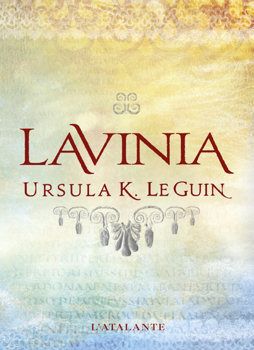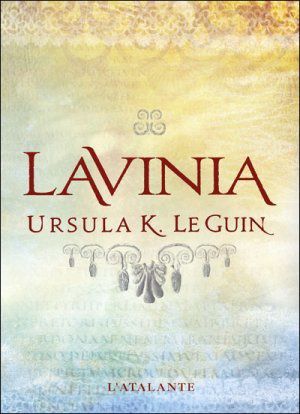


Told with unassuming but descriptive language, and with her inimitable style, Lavinia was a pleasure to read. Interestingly, almost in an existential awareness of her self as a character in the epic. LeGuin creates an unusual narrative device in which Lavinia comes to know “her poet” as Vergil is illuminated as a time travelling specter from the future, mystically visiting his subject as he survived a fever dream in the time of Augustus. This is really the element of this story that I will take with me: this vision of a simple life when Rome was not yet founded and the hills in what would someday become the greatest city in the world were populated with early tribes, farms and lives that would be legend.

Telling the story of Lavinia, who in Vergil’s great work Aenid, did not speak a word LeGuin describes the princess’s story in that of an almost pre-historic and pagan setting. All very low probabilities.Īs expected, this is beautifully written and crafted with an inspired structure. I guess anything is possible: I could win the lottery, get hit by a meteorite, struck by lightning, etc. The Hainish Cycle reflects the anthropologist's experience of immersing themselves in new strange cultures since most of their main characters and narrators (Le Guin favoured the first-person narration) are envoys from a humanitarian organization, the Ekumen, sent to investigate or ally themselves with the people of a different world and learn their ways. Her interest in non-Western philosophies was reflected in works such as "Solitude" and The Telling but even more interesting are her imagined societies, often mixing traits extracted from her profound knowledge of anthropology acquired from growing up with her father, the famous anthropologist, Alfred Kroeber.

She was known for her treatment of gender ( The Left Hand of Darkness, The Matter of Seggri), political systems ( The Telling, The Dispossessed) and difference/otherness in any other form. Her recent publications include the novel Lavinia, an essay collection, Cheek by Jowl, and The Wild Girls. Le Guin published twenty-two novels, eleven volumes of short stories, four collections of essays, twelve books for children, six volumes of poetry and four of translation, and has received many awards: Hugo, Nebula, National Book Award, PEN-Malamud, etc.


 0 kommentar(er)
0 kommentar(er)
